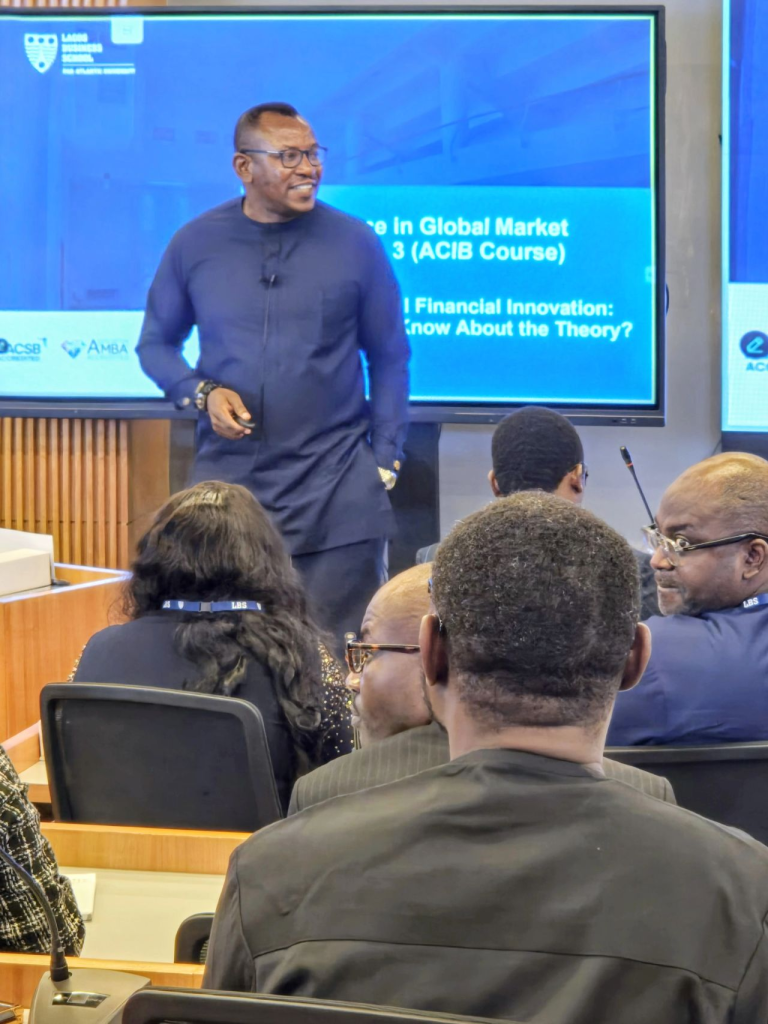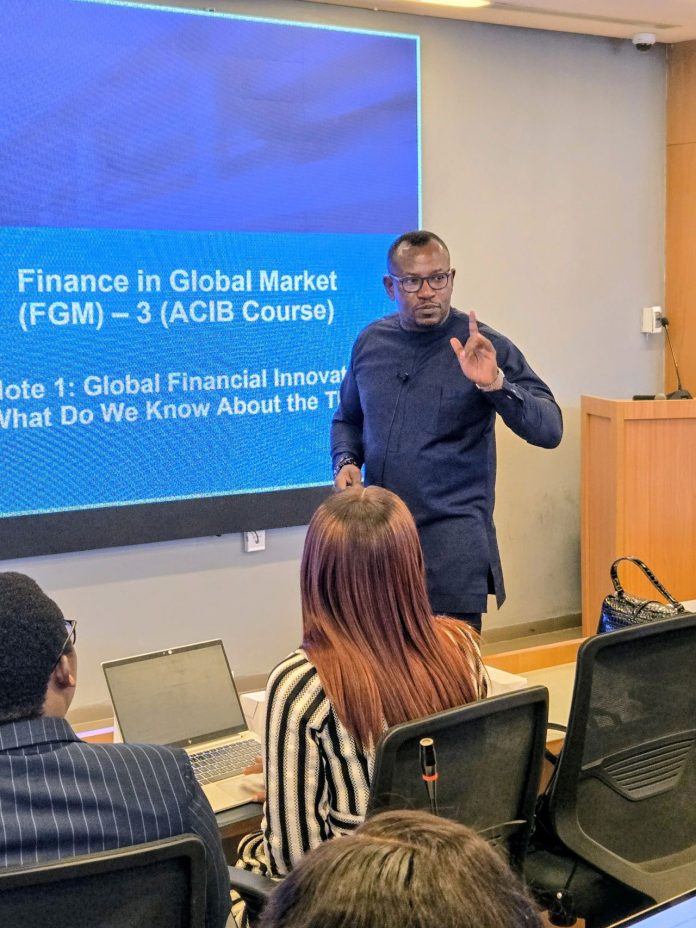When Dr. Jekwu Ozoemene addressed senior African banking executives at Lagos Business School (LBS) in an intensive advanced banking module, his message was not simply academic — it was a strategic warning to a continent increasingly exposed to global capital dynamics.
The rules of global finance are changing, and Africa must not be caught unaware.
✅ A New Financial Order, Built Outside Banks
Over the last decade, global markets have quietly shifted toward non-bank financial intermediaries (NBFIs) — investment funds, private credit firms, hedge funds, structured finance vehicles, asset managers, and fintech lenders.
These entities now hold 49.1% of global financial assets, surpassing traditional banks in scale.
It represents one of the most profound structural transformations in modern finance — but one happening largely outside public visibility.
The consequences?
- Traditional banking supervisors have diminished visibility
- Risk oversight has fractured across borders and institutions
- Capital markets—not central banks—now dictate liquidity cycles
- Private debt markets rival syndicated lending volumes
In effect, global credit creation is migrating to rooms without windows.
✅ Innovation Is Outpacing Regulation
Dr. Ozoemene emphasized that the rise of shadow banking is not inherently negative — it expands credit, fuels innovation, and deepens financial markets. But innovation has raced ahead of guardrails.
“When half of the world’s capital exists outside prudential oversight, you have innovation — but also opacity, leverage, and hidden risks.”
Key vulnerabilities in the NBFI space include:
| Pressure Point | Systemic Risk |
|---|---|
| Opaque structures | Hidden leverage, mispriced risk |
| Maturity mismatch | Liquidity crises during stress |
| Dependence on wholesale funding | Run-risk, margin shock |
| Private credit surge | Underwriting gaps, covenant erosion |
| Synthetic risk transfer | Unclear counterparty exposure |
This is the architecture of fragility.
✅ The Ghosts of 2008 Are Whispering
Recent central-bank commentary shows rising alarm.
The Bank of England’s Andrew Bailey warned of “worrying echoes” of the subprime bubble.
Markets are again witnessing:
- Weak credit underwriting
- Highly leveraged borrowers
- Complex structuring (“slicing and dicing” debt)
- Under-regulated intermediaries
- Investor complacency
The failures of US leveraged firms First Brands and Tricolor may be early tremors.
Jamie Dimon’s “cockroach” warning underscores the market psychology: one visible failure usually means many concealed vulnerabilities.
✅ Why This Matters for Africa
Africa’s financial systems are traditionally bank-centric. But capital is becoming increasingly globalized — and contagion does not respect geography.
When global credit tightens:
- Sovereign bond spreads widen
- Access to Eurobond markets shrinks
- FX liquidity tightens
- Capital inflows slow
- Banking sector risk rises
We saw this during:
- 2008 GFC
- 2013 taper tantrum
- 2020 COVID financial shock
A global private-credit shock today could transmit through:

- Cross-border lending channels
- Dollar funding markets
- Foreign investment in African banks
- Fintech-credit partnerships
- Diaspora investment funds
African markets are no longer financially peripheral — they are interconnected nodes.
✅ Regulatory Mindset: Prudence With Innovation
Dr. Ozoemene’s message to African banking leaders was a strategic balancing act:
“Our responsibility is to harness innovation but stay ahead of risk — not react to it.”
Regulatory modernization priorities include:
| Priority | Rationale |
|---|---|
| Macro-prudential surveillance | System-wide lens |
| Cross-border regulatory cooperation | Shared information architecture |
| Stress-testing for NBFI linkages | Crisis-scenario insight |
| Market conduct oversight | Transparency, integrity |
| Real-time risk analytics | Proactive resilience |
Above all, the culture of banking leadership must evolve:
- From yield-chasing to risk-valuation
- From opaque structures to transparency
- From crisis reaction to pre-crisis detection
Innovation without supervision is simply leverage wearing lipstick.
✅ Nigeria’s Lesson for the Continent
Nigeria learned the hard way during the post-2008 banking crisis.
The phrase Ozoemene invoked is more than a slogan — it is a doctrine:
“The return of capital matters more than the return on capital.”
In periods of rapid financial innovation, prudence is not caution — it is strategy.
✅ The Real Message
Africa does not need to fear innovation — it must govern it intelligently.
Shadow banking is not a threat in itself.
Unregulated shadow banking is.
And in a world where capital flows can shift overnight and crises can originate from unseen corners of the financial system, foresight is not optional.
It is survival.
T




